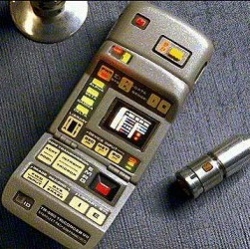
What a great place that Singularity University is. Smart, motivated people coming together to make the world a better place through technology. This past summer a group of talented students put their heads together to tackle the Global Health grand challenge. What they came up with was a hardware platform built into a t-shirt for which developers might design sensory applications. Out of that one platform sprung a company, Senstore, which is bent on building a platform versatile enough to support hardware as diverse as apps for an operating system. I got a chance to speak with Senstore co-founders Antony Evans and Rachel Kalmar about their vision, what challenges they face in achieving it, and how their technology will impact healthcare of the future.
After building the platform at SU, Evans and Kalmar took it to Startup Weekend, an intense 54-hour workshop to develop marketable technologies, and tasked engineers with turning their hardware into a body sensor. What resulted was a device called Live Home Free that an elderly person who lives alone could wear. If they’ve fallen and they can’t get up, the device detects the abrupt change in movement/posture, and signals to their families or primary care givers that something is wrong. The team built the device in the allotted 54 hours and received top prize for the Health vertical.
But rather than simply build a better LifeCall, Live Home Free was a kind of proof-of-principle that the team hopes will lead to a hardware platform on which others can build sensors to monitor the body. Senstore was founded with the explicit goal of putting “a health sensor device on every body.” Live Home Free will be the company’s first commercially available product, but their sights are set on a device that does more than detect falls. What they want to build is a medical tricorder that monitors the entire body.
